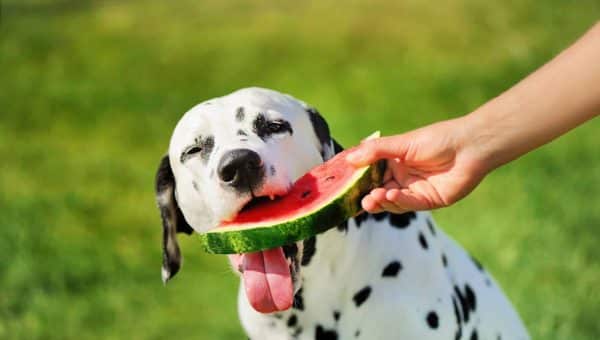Pint-sized puppies have lots of energy and speedy metabolisms—and for optimal health, their diets need to reflect that. Since they mature faster than larger breeds and burn through calories quicker, small-breed puppies require energy-dense food packed with protein and fat. Tinier jaws also need smaller kibble. So, what’s the best puppy food for small breeds?
Thankfully, the pet food scene is filled with good options for petite pups. But the abundance of choice can easily become overwhelming, especially for first-time pet parents. To help you make sense of it all, we’ve broken down the different types of food—from kibble to raw. This guide aims to help you choose the best food for your small puppy by explaining the unique benefits of each category of food. Within each type of food, you’ll often find products specifically designed for small breeds with ingredients tailored to the different life stages.
To choose a food in any of the categories, we recommend looking for one that is certified by UK Pet Food, a regulatory body that checks for high nutritional standards. This will ensure that your dog’s food complies with the research-based nutritional guidelines set out by the FEDIAF (the European Pet Food Industry).
Kibble
Don’t be fooled by their miniature stature; though small-breed puppies may not be able to eat as much in one sitting as a large-breed puppy due to their smaller stomachs, those small meals need to be densely packed in calories, protein, and fat to keep up with their speedy metabolisms and ensure they are getting enough of the nutrients they need.
For many new puppy parents, dry food will be the diet of choice. it’s convenient to serve and store, it’s generally more affordable, and it can provide all of the nutrients your growing puppy needs. The best dry food for puppies will offer sufficient protein for developing bodies while balancing critical nutrients like calcium and phosphorus.
Dehydrated
Foods of this kind are developed by dehydrating fresh ingredients, including meat and vegetables, at low temperatures to preserve natural vitamins and minerals. It can then be served dry like normal kibble. This type of food does tend to be more expensive, but there are a range of dehydrated dog food manufacturers in the UK.
Wet Food
Wet food can be one of the best puppy foods for small breeds. It’s easier to chew and swallow, and it normally has higher levels of protein and fat. Wet food also tends to have good appeal for fussy eaters, and is also good served alongside some kibble, which can keep overall costs down. Food refusal is especially concerning with small breeds who are at risk of hypoglycemia (low blood sugar) if they go too long without food.
Best Fresh Food
Gently cooked fresh foods are the latest to hit the pet food industry. They’re often offered by subscription services, which will quiz you on your dog’s needs, favourite foods and lifestyle to come up with the perfect bespoke formula. There are lots of benefits to feeding your dog freshly made pet food, including less processing and the fact that you can see exactly what’s in their bowl.
Raw-Coated
While it won’t be for every pup, there is some evidence that raw protein may be easier for some dogs to digest. Some pet parents opt for raw because it may retain nutrients better than foods that are cooked with heat. That said, raw food does pose the risk of contamination, and pet parents should always proceed with caution—especially with puppies whose immune systems are still developing. But with raw-coated food, kibble is coated with freeze-dried raw protein for a burst of flavour and nutrition—reducing the bacteria and contamination risk.
Grain-Free
While food allergies are rare in dogs—and grain allergies even rarer—puppies with a known wheat or corn allergy may need a grain-free diet. If that’s the case, you have dry and wet food options.
Food For Sensitive Stomachs
Since puppies with tummy troubles may be reluctant to eat, a palatable food goes a long way in ensuring they still get the nutrition they need. A lot of dogs are naturally attracted to the smell, taste and texture of salmon, and lamb is also a crowd-pleaser—so, it’s a good idea to look for a good quality food with these ingredients. Before switching to a diet for sensitive tummies, consult your vet—it may be that your dog is allergic to something they’re eating, so it’s best to rule that out first.





